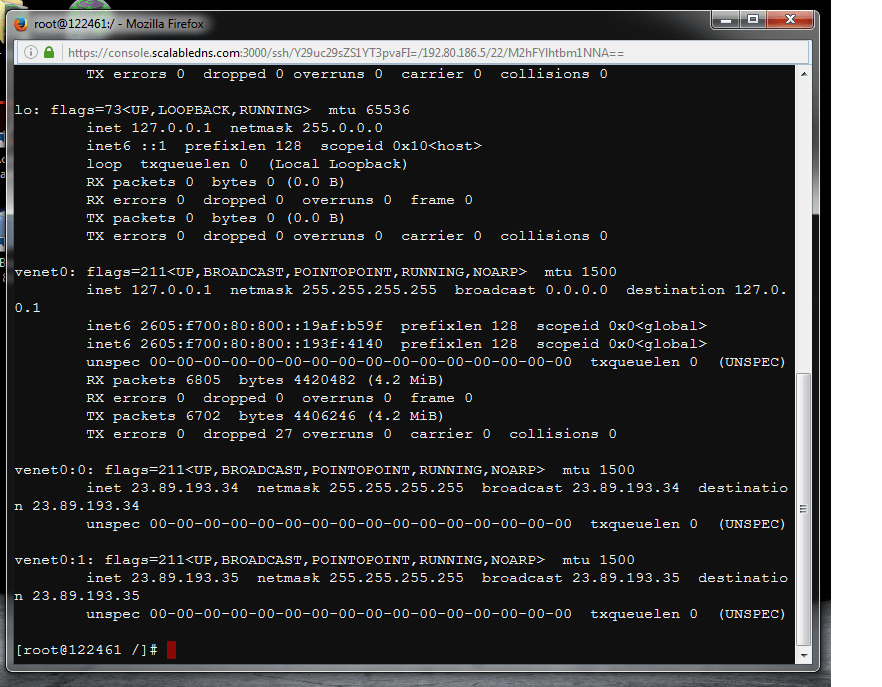Does the command esxtop work ?
This tool is used to check performances on Virtual Machines
Check the network interfaces.
Run the command ifconfig. If you see something like this:
venet0 Link encap:UNSPEC HWaddr 00-00-00-00-00-00-00-00-00-00-00-00-00-00-00-00
inet addr:127.0.0.1 P-t-P:127.0.0.1 Bcast:0.0.0.0 Mask:255.255.255.255
UP BROADCAST POINTOPOINT RUNNING NOARP MTU:1500 Metric:1
RX packets:99999 errors:0 dropped:0 overruns:0 frame:0
TX packets:99999 errors:0 dropped:0 overruns:0 carrier:0
collisions:0 txqueuelen:0
RX bytes:126223307 (120.3 MiB) TX bytes:2897538 (2.7 MiB)
venet0:0 Link encap:UNSPEC HWaddr 00-00-00-00-00-00-00-00-00-00-00-00-00-00-00-00
inet addr:6x.xxx.xxx.xxx P-t-P:6x.xxx.xxx.xxx Bcast:6x.xxx.xxx.xxx Mask:255.255.255.255
UP BROADCAST POINTOPOINT RUNNING NOARP MTU:1400 Metric:1
you are probably have a VPS since venet0 is telling that this server is being an OpenVZ VPS. Note: This is not 100% fool proof, some VPS like Xen have an eth0.
Check devices/system:
Run lspci and dmesg as root. If you see something like:
VMWare SVGA device
acd0: CDROM <VMware Virtual IDE CDROM Drive/00000001> at ata0-master UDMA33
da0: <VMware Virtual disk 1.0> Fixed Direct Access SCSI-2 device
Then you are using a VPS.
Check if some files exists:
If it’s a VPS running OpenVZ they’d have a file called /proc/user_beancounters. View http://wiki.openvz.org/Proc/user_beancounters for more details.
Look if /proc/vz or /proc/vz/veinfo exists (for OpenVZ) or /proc/sys/xen, /sys/bus/xen or /proc/xen (for Xen)
Check if /proc/self/status has an s_context or VxID field.
If one of these file exists, then you have a VPS.
IP lookup:
You could do a reverse IP lookup to check to see if any other websites are hosted on the same IP.
Check Memory:
Run lspci and look for RAM memory: Qumranet, Inc. Virtio memory balloon. Then you have a VPS.

Thank you so much for this information.It will really helpfull to us.